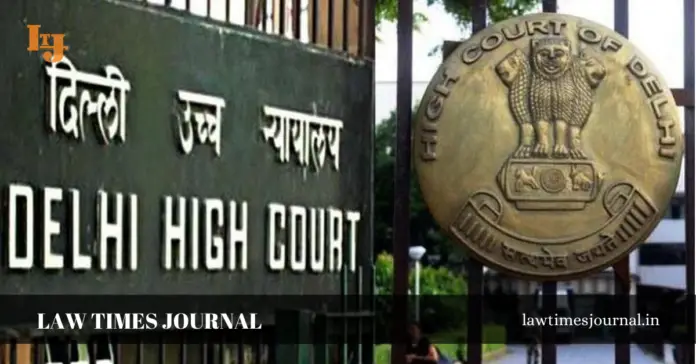
The Hon’ble Delhi High Court on Tuesday in a landmark judgment has laid down some important principles to be observed while imposing Sections 15, 17, and 18 of the Unlawful Activities (Prevention) Act, 1967 (hereinafter referred to as “UAPA, 1967”).
The Hon’ble High Court in granting bail to the accused in Delhi riots, Asif Iqbal Tanha, Natasha Naswal, and Devangana Kalita, has shed light on the vaguely interpreted Section 15 of the UAPA, 1967 which deals with the offenses of ‘terrorist act’.
The three were alleged of conspiracy for inciting violence during the anti-Citizenship(Amendment) Act, 2019, and are facing charges under Sections 15, 17, and 18 within chapter 4 of the UAPA, 1967 apart from other charges of Indian Penal Code, 1860. Section 17 of the UAPA, 1967 deals with the Punishment for raising funds for committing a terrorist act and Section. 18 is for punishment for conspiracy to commit a terrorist act.
The Hon’ble Divisional Bench of Hon’ble Justice Sidharth Mridul and Hon’ble Justice Anup Jairam Bhambhani while granting bail to the three has held that the charges imposed on them did not seem to apply to the acts committed by them. The Hon’ble Bench further has set certain principles to be observed for the application and limitations of sections 15, 17, and 18 of the UAPA, 1967.
The following are the Highlighting principles made by the Hon’ble High Court :
- Terrorist act under Section 15 of the UAPA, 1967 should not be used lightly so as trivialize them.
- Terrorist activity is that which is beyond the capacity of Law enforcement agencies under ordinary penal laws.
- Every terrorist may be a criminal but every criminal need not be tagged as a terrorist.
- A terrorist act is other than an ordinary law and order problem.
- Section 15 of the UAPA, 1967 cannot be applied to cases falling under the purview of the IPC.
- In dealing with serious penal laws the courts must consider the intention of the legislature.
- Terrorist acts are essential matters that have implications for the defence of India.
- Usual offences irrespective of their gravity and severity cannot be constituted as offences under UAPA,1967.
- Section 15 can be set in motion only when arms, explosives, or other substances are found with the accused according to Section 43E.
- It is not for the courts to draw inferences and conclusions but for the state to bring a case within Chapter 4 of the UAPA,1967.
- The onus of burden will be on the prosecution in cases dealing with UAPA,1967.





